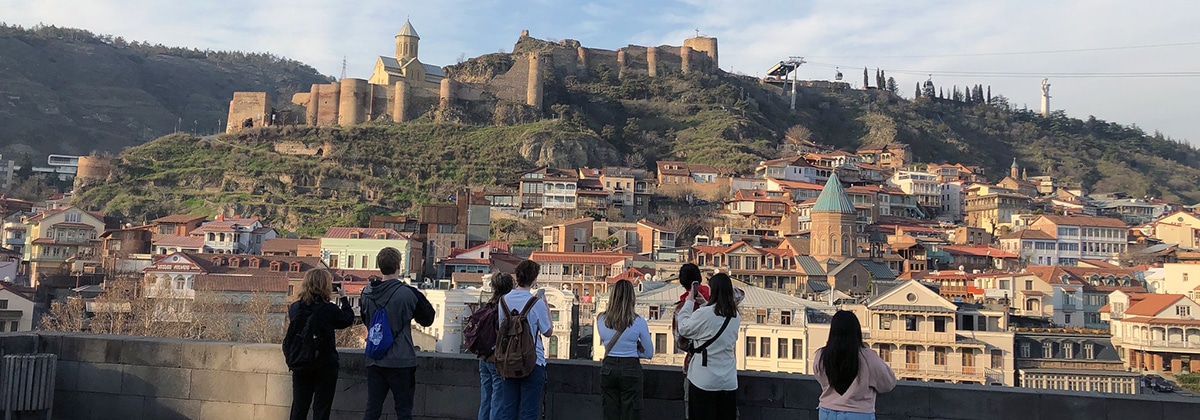Survey of Students of the Russian Language, 2023-2024
Background
The Survey of Enrollments in Russian Language Classes has long gathered statistics about enrollments in college and pre-college Russian language courses. For 2023-2024, we have added a new component: a short survey for the students themselves. The purpose of this survey is primarily to discern the motives that prompted students to enroll in Russian language classes. Our hope is to both better understand students of Russian and their decision-making process and inform the educators and administrators who contribute to the Survey of Enrollments on how they might be able to better attract and retain students.
Find out more about SRAS and our varied projects.
To distribute this survey, we asked the educators on our contact lists for the Survey of Enrollments to pass it along to their students. This represents an inefficiency, as it requires both the participation of the educator and the student.
Another challenge faced was that we were not entirely sure what to expect in terms of student responses to our questions. We left an open-ended “other” at the end of many questions to account for this. Many students took advantage of this, and we had to group these responses into new categories for the purposes of presenting them here.
If you are interested in supporting Russian language study at the pre-college or college level or wish to connect with SRAS, either to add information about your program, ask questions, or make recommendations for our projects, please contact us.
Survey of Students of Russian 2023-2024
The survey attracted 425 student responses. Polling was conducted between October, 2023 – March 2023. While the school affiliation question was left optional (in order to allow students full anonymity if they desired), from those that did report affiliation, we can say that at least 68 universities and three high schools spread across the US are represented.
When They Began
Why They Became Interested in Russian
We asked for students’ primary interest for beginning their study of Russian. Students were allowed to pick only one option from:
- Interest in Russian literature / arts / culture / history
- Friend/family connections to the language or culture
- General interest in language/linguistics
- Career prospects
- Other
Students who opted for “other” were given a chance to write in their own answer. Many used this option.
Some used it to manually indicate combinations of the above three. These responses are now grouped under “Multiple/hard to say.”
Some indicated that their interest began with church service. The vast majority of these respondents stated specifically that they had been selected for a mission for The Church of Jesus Christ of Latter Day Saints to a Russian-speaking area of the world. Two indicated having become involved with Russian-speaking refugees via their church. These respondents are now grouped under “Church service.”
One answer that we did not expect but turned out to be significant came from a small percentage of students that had signed up solely to fulfill a school requirement, whether for general graduation or to qualify for an honors diploma. These students implied that the language was chosen at random from a list or based on class availability. The respondents are grouped under “Fulfilling a requirement.”
Some students gave responses that did not fit into significantly larger categories. These are now grouped under “Other” and include students who say they enrolled based on professor reputation or on the recommendation of a friend, that they were specifically interested in the geopolitics of the region, that they were accidentally enrolled, etc. These are grouped under “Other.”
Some answers were grouped under existing topics. For instance, many students used “other” to say that a specific relative or friend was Russian or that they were heritage speakers of Russian, which would indicate a familial connection and thus fit under an existing category. Others wrote specifically of the ability to gain a higher pay grade in the army by learning a language or the ability to use the language in a future medical profession, which would indicate an interest in career prospects. These answers were grouped accordingly.
Their Continuing Interests
We asked what their continuing interests in studying Russian are. Students were allowed to choose multiple options. Few students chose the “other” option here and most who did used it to indicate that they are only pursuing a requirement.
Their Career Plans
We asked students what their future career plans are. Here, we originally offered options of government or military, education, business, translation and interpretation, undecided, and other. More than half of students picked “other” to write in their profession, which turned out to be very diverse. Science and technology was especially prevalent, with many claiming future employment as engineers and scientists. There were also a significant number of legal and medical professions claimed as well social work, arts and entertainment, religious work, library science, and more. These have been grouped into relevant categories below.
In future iterations of this survey we plan to ask students if they see Russian language skills playing a role in their future career plans.
Effects of the War in Ukraine
Data Set
The original questionnaire is archived here.
Other surveys can be found here.
"We had a great time overall. The students were super impressed with SRAS -- the guides, the accommodations, the excursions, etc. The guides were super knowledgeable and kind--the only thing that would improve the tours is volume. They tend to speak quietly so a few people who can't hear lose interest. But we loved the Hermitage art project and Novgorod, and the bunker, and going behind the fountains at Peterhof, and the boat to Peterhof... We loved everything!"
- Ona Renner-Fahey, University of Montana
"My Dear Renee, I am still in Kazakhstan but can report back we had a perfectly splendid time in Kyrgyzstan. The students and I want to collectively buy a little plot of land and a yurt or house in the village at the base of the mountains. They loved their families and I fell in love with Kenzhe, we want to include her in our documentary. I will be in touch over the next two weeks. Forever grateful to you."
- Jane Knox-Voina, Bowdoin College
"A long overdue thank you for the wonderful trip you and your staff planned for the Drew group in St. Petersburg. I have never had a trip where NOTHING went wrong. It was a terrific experience from start to finish, your staff was superb and St. Petersburg Economics University was a marvelous host. We enjoyed each and every lecture and guide, and the many fine added touches. I would love to do this again."
- Dr. Carol R. Ueland, Drew University
"Renee, the work that you do is so far beyond any kind of formal service or trip planning in your vision, scope, and ability to think of absolutely everything and anticipate potential problems in advance. You clearly have a gift for this."
- Andrea Lanoux, Connecticut College
"The SRAS guides were excellent! They really knew their stuff and were able to relate the history of the places we visited in an interesting and inventive way. It was obvious they had a lot of experience working with American students."
- Charles Arndt III, Union College

